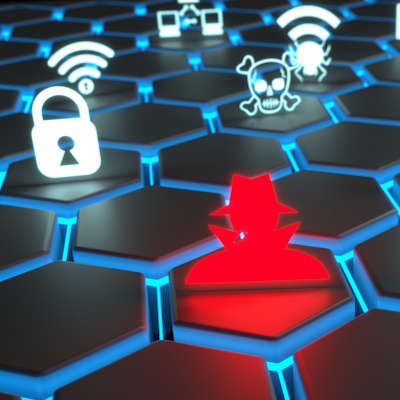The COVID-19 pandemic seems to be affecting every aspect of our lives, cybersecurity included. Hackers are taking advantage of the situation to attack unprotected and unprepared people and businesses online. We want our community to be aware.
A Variety of Threats
Threats to business’ data and infrastructure have been exacerbated by the COVID-19 pandemic because cybercriminals use the COVID-19 narrative to lend credibility to their stories. Most of the threats are just a version of the normal ruses, but with an increased frequency. Some threats that business see are:
- • Phishing attacks
- • Distributed denial of service attacks
- • Man-in-the-Middle attacks
- • Network-based user threats due to negligence or sabotage
Some of the Latest Scams:
Website Spoofing
Scammers are setting up spoofed websites because people are shopping online more to avoid contact. From fake government websites to websites offering discount face masks or hand sanitizers, fake shopping sites are being set up to steal people’s information. With this information, hackers can break into bank accounts, credit lines, other sensitive data. Here’s what you can do to protect yourself:
- • Check the URL – A fake site might look just like the real one, but the URL won’t. Since many of these scams spoof government and banking websites, make sure you check all URLs by mousing over any links or buttons on a page or webform. If it doesn’t show where the information is going, or if the address is suspicious, don’t use the website.
- • Use Ad Blockers – Ad blocking software available through your browser’s store skims out a lot of problems because hackers use them to plant cookies on your computer.
Email and Text Phishing
Phishing is a useful tool for hackers because it targets users through a supposedly legitimate email. Impersonating someone to gain access to personal information is older than the web, and of course, right now, hackers will use the coronavirus as a topic to put users off their guard.
Over three billion phishing emails are sent each day, so unless you and your staff are trained to spot and terminate these threats, eventually you’re going to get hit. Here are a few strategies you can use to protect yourself from phishing emails:
- • Confirm the Sender – People trust the email if they trust the sender. Make sure the message you’ve received is from whom it says it is.
- • Don’t Click on Links and Attachments – Even well-trained employees can be fooled by a legitimate-looking link. If you aren’t expecting an email, or if you don’t personally know the person or organization that’s sending you a message, don’t click on anything.
Cybercrime will outlast COVID-19. Protect your business. For more information about stopping COVID-19-based cyber threats, or if you would like to train your staff in cybersecurity best practices, reach out to Quikteks today at (973) 882-4644. We can help.

